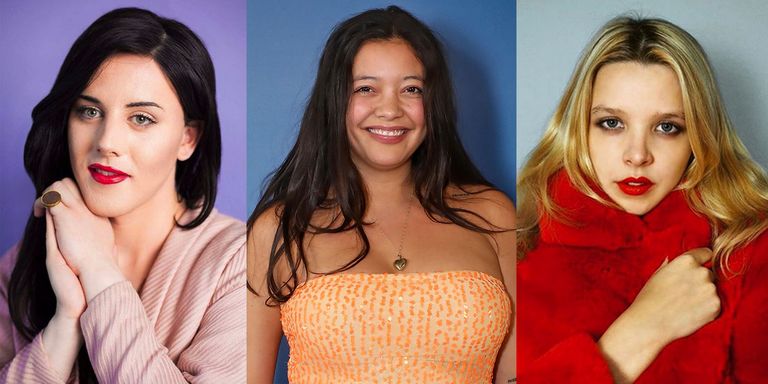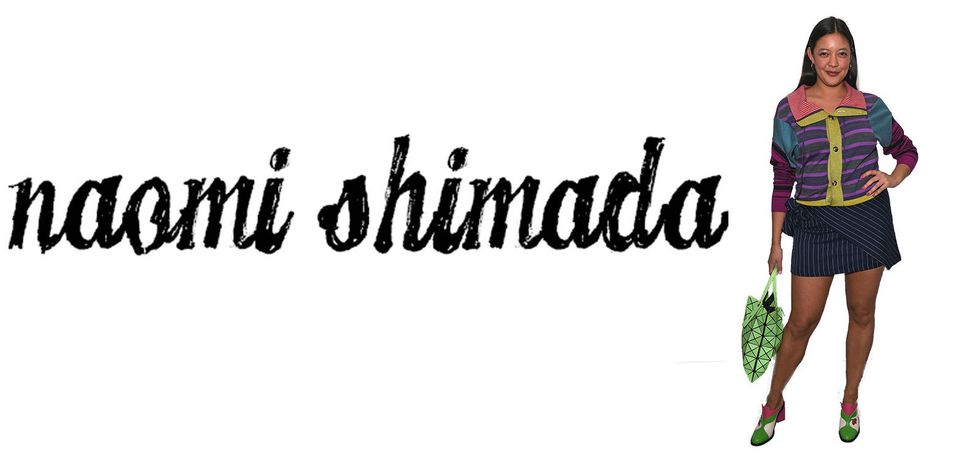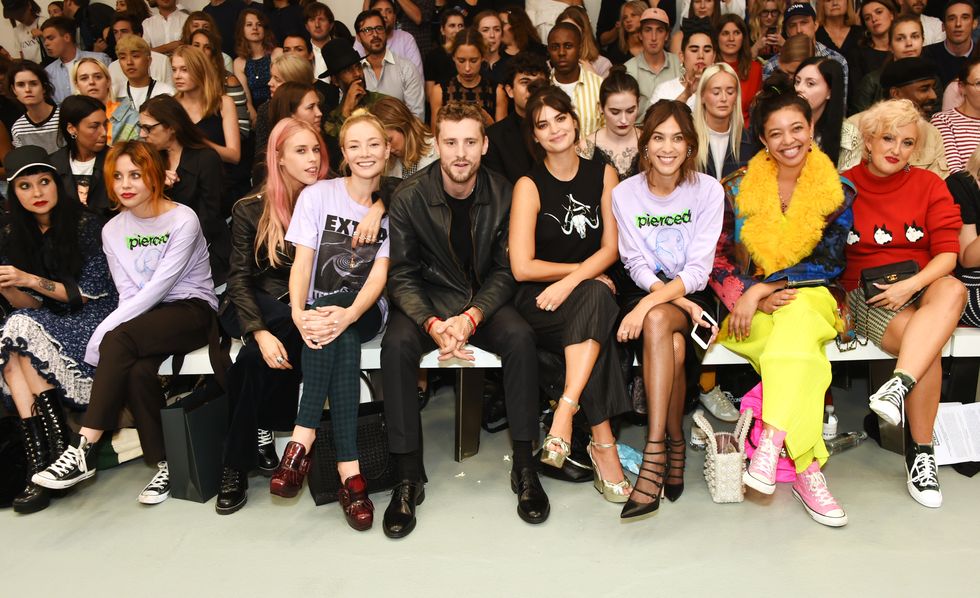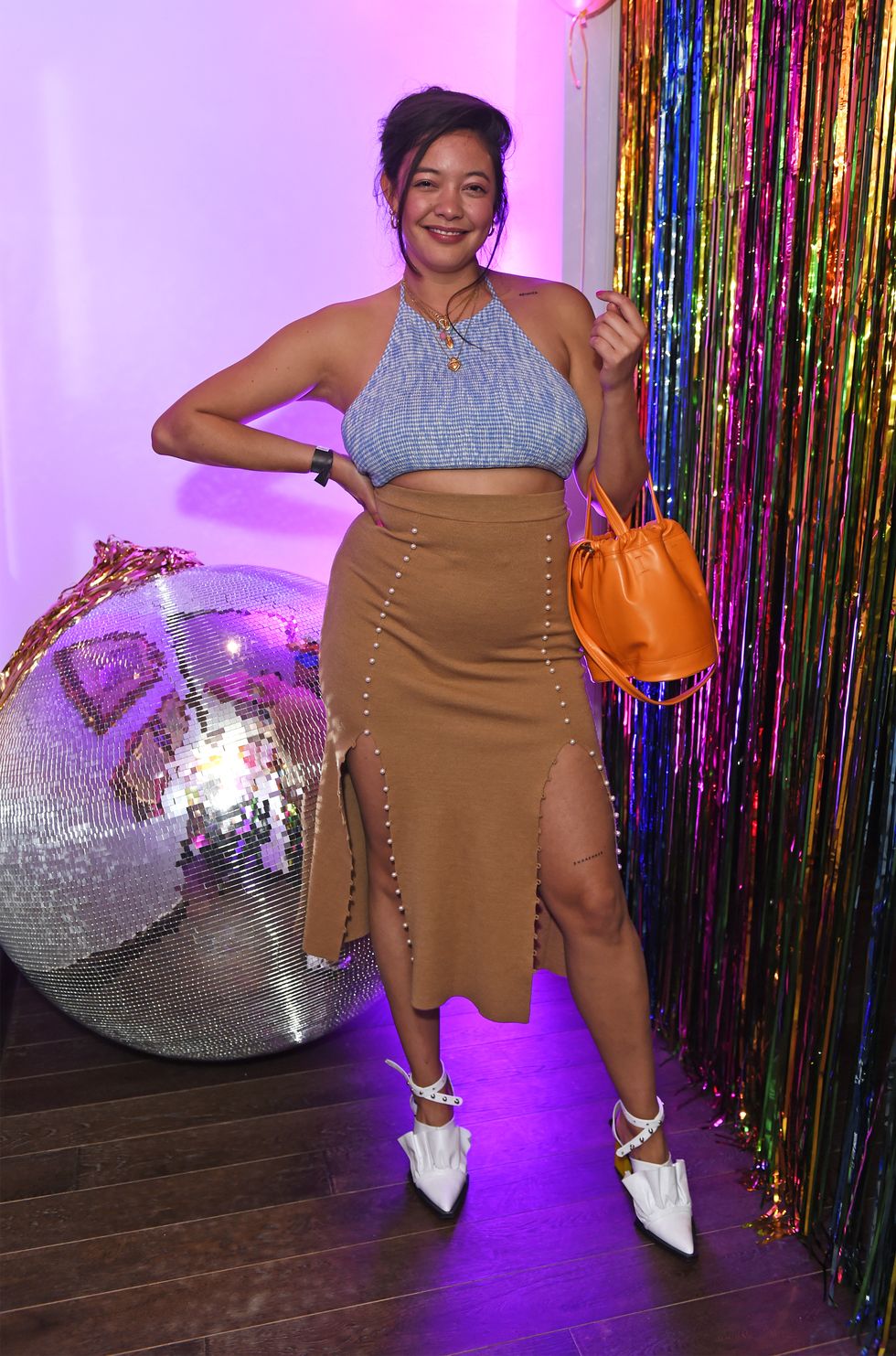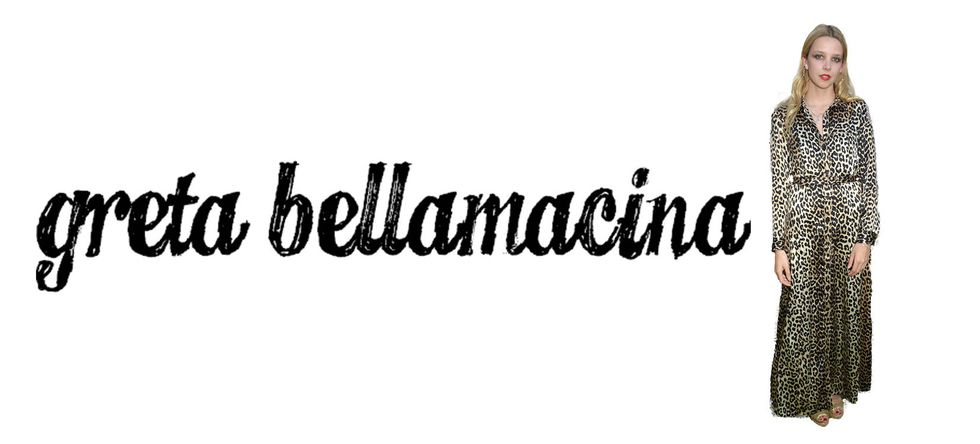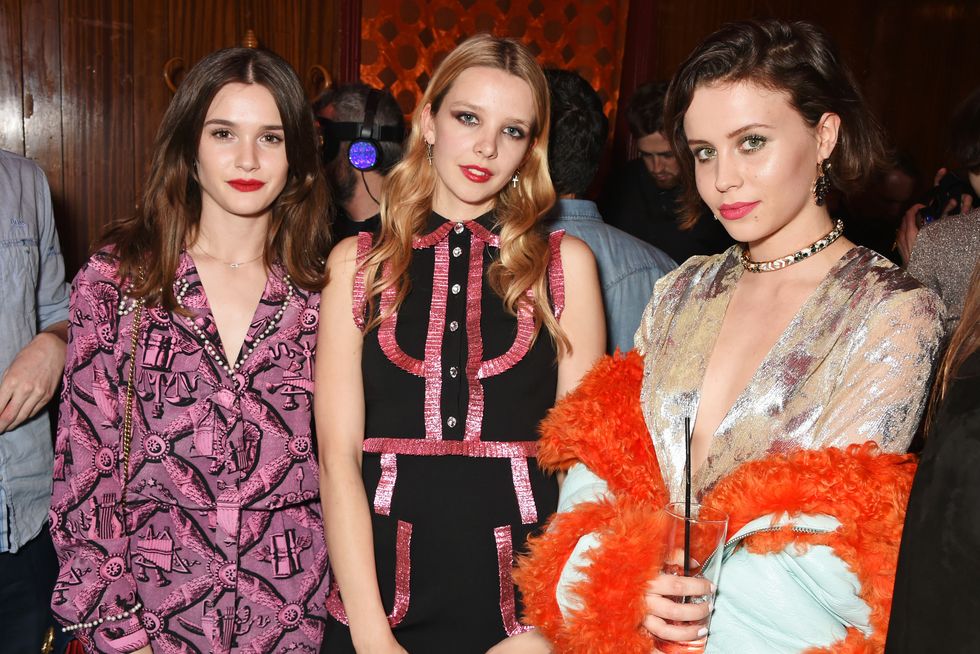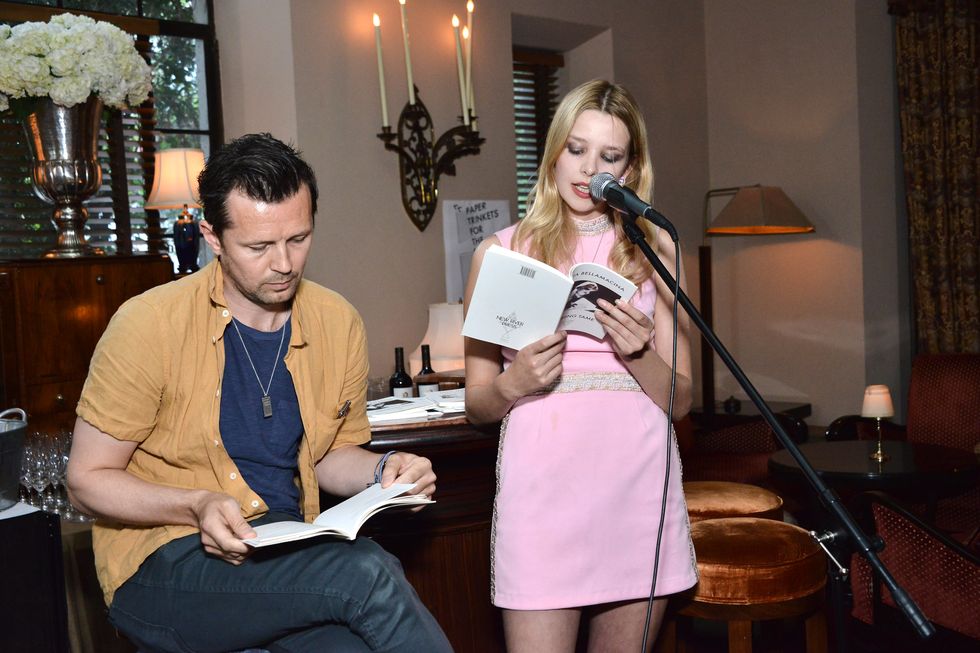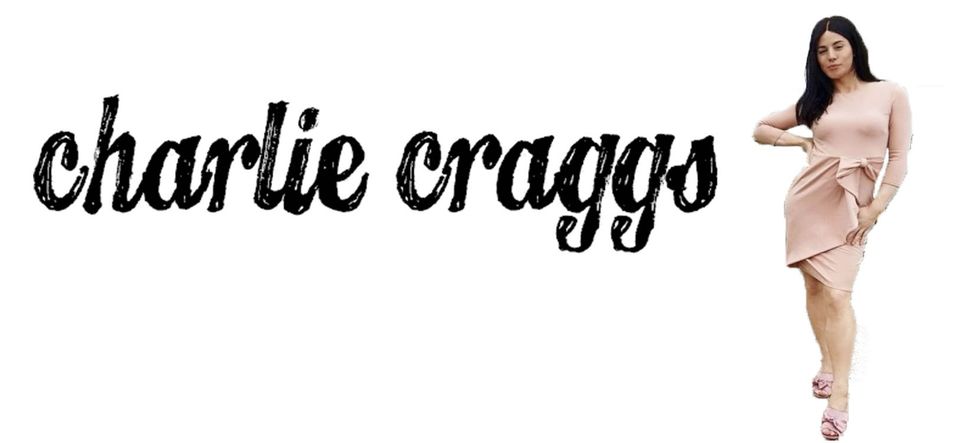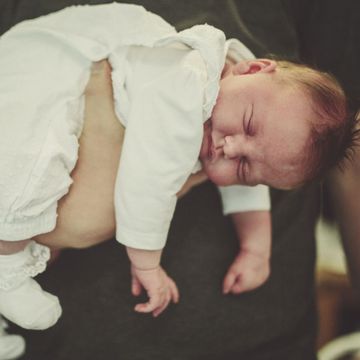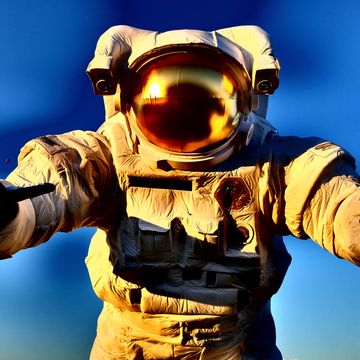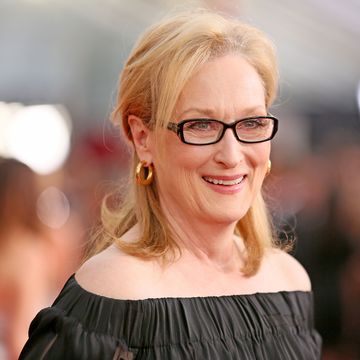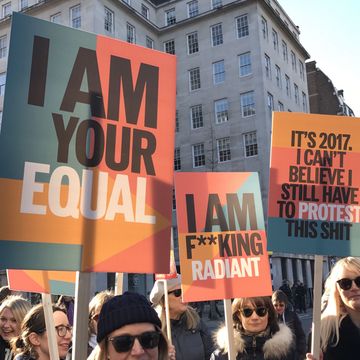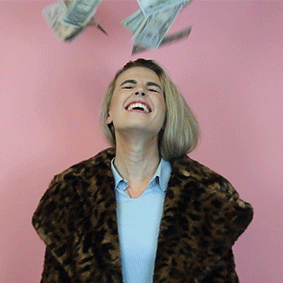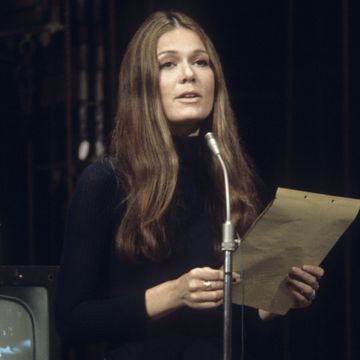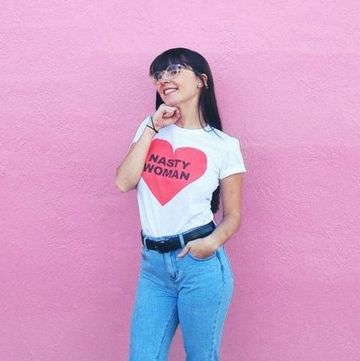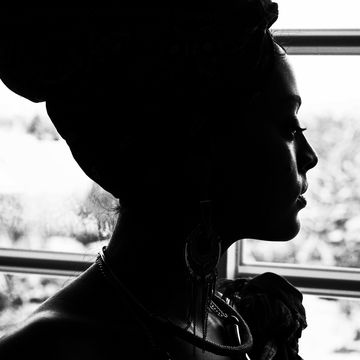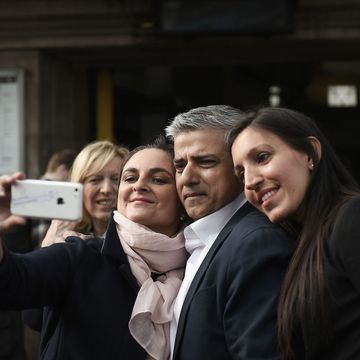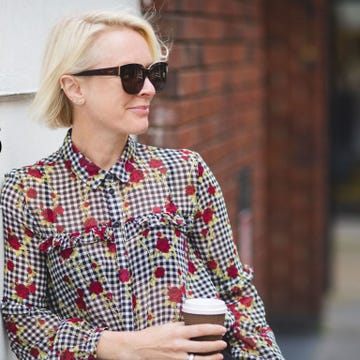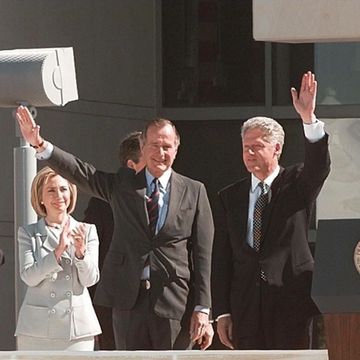If Trump's pussy-grabbing has shown us anything, it's that we're living in unprecedented times, where women's rights to be who they are, to be political, to have dominion over their own bodies, all seem to be sliding backwards.
Millions of women have taken to the streets to rally against Trump, to protest against pay gaps, or to claim reproductive rights back and the first mass International Women's Strike is being held - in 2017, it has been harder not to join the ongoing fight for equality this past year.
Over at ELLE we are increasingly doing our best to get politicised, but sometimes, no matter how hard we try, it can still feel like we're falling short. Buying conscious clothing? Yep. Policing our gendered language? Of course. Shouting down every mansplainer? Duh. But we've got a nagging feeling it's still not quite enough.
We want to be radical in our daily lives. Not just one-off radicalism, either: this is about committing to the cause every single day.
But how, exactly, do you do that? To find out, we spoke to three 'radical' women about how they, despite the grinding realities of rent, careers and sexism, live authentically, and what got them to this point.
We're calling it 'resist by existing,' and it's an important concept. Showing up one day a year for a protest can only do so much, living your truth and exercising your rights consistently is the true battle.
Naomi Shimada is the 29-year-old model, film-maker and activist that you'll probably recognise from her seat on the front row and ad campaigns with Nike. Her Instagram boasts 38k followers due to her honest and relatable posts as well as vibrant style.
'Honest conversation is the most radical, simple thing that you can do.
'The internet has obviously been a good thing in many ways, but there has also never been a generation more anxious and depressed than this one. So I think part of radical living is limiting how you use it. You need to convert those conversations into real-life ones.
'I was in a really bad relationship where I felt very alone. Everyone thought we looked so cute together, and we did look really happy, but we weren't at all. Nobody knew what was going on because I didn't tell anyone.
'Eventually I started talking out loud to friends about the things I was going through, even strangers sometimes, and I found solace in that.
'There's no stronger connection than you being vulnerable in front of someone and them looking you dead in the eye and being like, 'you know what? Me too.'
'I read an Alice Walker quote year ago which says, 'Activism is the rent I pay for living on this planet.' Standing up for things that you believe in, right? Things won't change unless this stuff is part of our daily lives.
'For me, the political and personal are together one hundred per cent. I'm trying to educate myself first, though.
'I've been doing back-to-back different courses at Goldsmiths for the last year. I'm reading things and listening. Doing it but not over-doing it, which I was before and wasn't sleeping, and became extra-anxious.
'On a practical level, I'm trying to start a sharing circle. It's a way of having a conversation with the girls who write to me all the time.
'All my work – whether it's modelling, or the book that I'm working on – focuses on lifting shame. We live in such a shame-riddled culture and actually, if we're all going through it, it's not shameful anymore.
'As women we are taught to feel shame for so many things from the day we are born. What we look like, menstruation, sex, the power play between sexes, talking too loud, crying, taking up too much space - everything.
'Initially, I felt overwhelmed because I don't have the answers right now. But then I realised it's not actually about having the answers, its about being heard.
'Recent events have woken people up. Not simply in the political sense, but to caring about other people.
A culture of caring about your community is the only thing that's going to get us through all of this. And not just get us through, it's the only thing that's going to create change.
'But bringing about practical change isn't just simply going to a protest. It's not a one off. It's not just reading, it's asking and talking and learning from other people. It's helping them out, it's saying: 'you're my friend and I care for you, how do we protect each other?'
'I dont have the answers, but that's part of being radical; being a work in progress.'
Greta Bellamacina is the 27-year-old poet who has caught the eye of the fashion world (she's now the face of Ghost). The mother, documentary film-maker and actress spoke to us about deciding to have a child and writing as a woman today.
'I became a mother last year, while still in my early twenties, and was overwhelmed by how many people suddenly have an opinion on your body.
'There are so many expectations to being a female. If you wear pink, you can't be a feminist. If you speak out, you're too pushy, too ambitious.
'But the experience of motherhood presented a whole array of taboo subjects which don't often get spoken about in the media, but which women face every day, such as IVF, sex and pregnancy, fear, depression, abortion, and age.
'Luckily, I surround myself with incredible powerful women who I can call my sisters. I recently did a reading for International Women's Day with Salena Godden, Lisa Luxx and Joelle Taylor - there was so much love and respect in the room. I felt so privileged to be female.
'As a young poet I always struggled with how to make any kind of living from my work. Now I'm older, I realise there were so many other poets in the same boat. Someone once said to me that poetry is the last 'incorruptible art form' because there is no money in it.
'It wasn't until I met the love of my life and partner, Robert Montgomery, and started working together that we started to make some progress. Robert makes his living as an artist, and together we run New River Press to publish other poets we love and our own books. New River is like our own poetry 'indie label'.
'What makes me despair is the increasing capitalist society we live in. It seems in many ways that we are moving backwards. Public libraries are being made into luxury flats and gyms, universities fees keep going up, working class kids can't afford to be artists. So many people I know can barely pay their rent.
'The media puts too much emphasis on reality TV-style celebrities, famous people's children and pointless news - I find it sickening. We have become removed from our emotions.
'But the Internet is providing a way for people to engage with politics and become more politically aware. We live in a pioneering age for writers. For the first time you have a free platform to speak out, you can join together and challenge the backwards thinking of Trump et al.
'In times of despair, poetry is one of the only mediums which speaks out to people, it has an urgency to it. Right now? Poets are having a revolution.'
Charlie Craggs is the 24-year-old woman behind Nail Transphobia, the fabulously simple concept of a pop-up nail salon that sees people sit down and spend some time with Charlie whilst she does their nails.
The aim? Perhaps Craggs is the first trans person they've ever actually met, or at least had a proper conversation with, and maybe they will leave with a different perspective (as well as a good manicure).
'I've only been transitioning for a few of years, so I'm still learning my womanhood. I'm like a teenager in a lot of ways - making major makeup mistakes every day (I actually think they're cute at the time) and thinking I have to act a certain way to be a woman and be liked by guys.
'These are mistakes that most girls make at 14. I'm 24. As I said, everyday I'm learning.
'I think going to a tough all-boys school really solidified my understanding of my identity. From day one, I was targeted for my femininity by my peers and even by some teachers.
[/instagram]
'I remember being called gay on my very first day.
'It was a hyper-masculine environment, everything smelled like wee and lynx and I had no friends because I was so different. I'd stand alone in the playground at lunchtime because I couldn't play football. I realised then that there was something different about me.
'Now I'm almost thankful for the prejudice I faced in secondary school because it forced me to realise that not only wasn't I like other boys, I wasn't even a boy at all.
'I've always been fiercely feminist, even prior to transition, but I'm unpacking a lot of internalised sexism that I've been force-fed throughout my life. For example, when I first started presenting as female I thought I had to wear heels every day.
'Interestingly a lot of my trans friends said they did the exact same thing when they began transitioning without questioning it. It's like: 'what the hell?' You pretty much have to pay me to wear heels now.
'The conflict between living one's truth and dealing with the reality of surviving in a patriarchal society is a very real thing for trans people. I 'came out' - or rather accepted myself as trans - in 2013 but only started presenting as female in 2015/16 for my own safety.
'Like most trans girl, jumping into living my life as a woman full time wasn't a luxury I could afford. I didn't have Caitlyn Jenner money to get all my surgery done beforehand.
'This meant that for a long time, only till very recently actually, I was trying to navigate the world as female with a beard. I had a very masculine body and face. I come from a council estate, where you're very likely more susceptible to transphobic violence.
'For the first couple of years I had this vision of the woman I was inside in my head, but I couldn't be her. It was like a prison sentence. Things have changed now. I wake up every day and am able to go out as the real me. I'm so grateful I suffered for and earned my womanhood.
'It's been a journey and the journey is ongoing, but it's the greatest, most rewarding, most important journey I've ever been on.'
Extra image credits: Getty
Daisy Murray is the Digital Fashion Editor at ELLE UK, spotlighting emerging designers, sustainable shopping, and celebrity style. Since joining in 2016 as an editorial intern, Daisy has run the gamut of fashion journalism - interviewing Molly Goddard backstage at London Fashion Week, investigating the power of androgynous dressing and celebrating the joys of vintage shopping.
